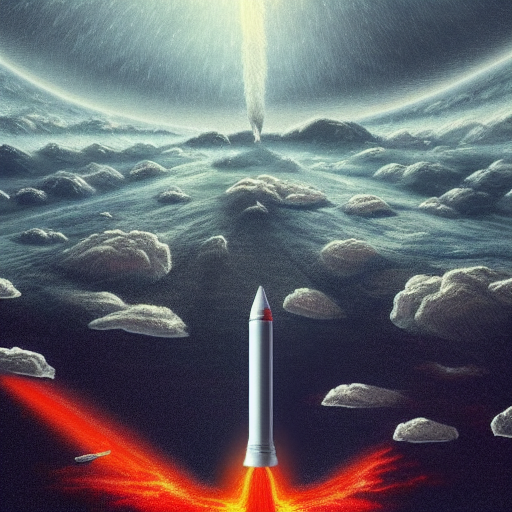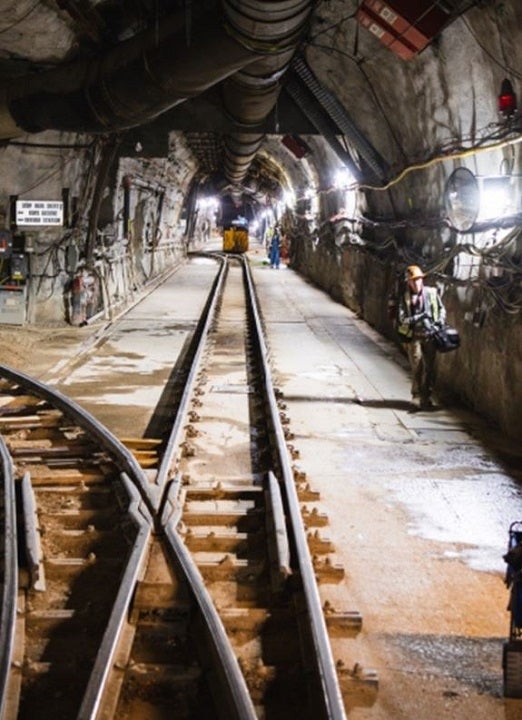
This question will resolve as YES if any nuclear weapon is detonated anywhere in the world after October 3, 2022 and before January 1, 2024. Otherwise NO.
A test detonation would result in the question resolving as YES.
A detonation would resolve YES regardless of whether it is deliberate, inadvertent, or accidental/unauthorised
A nuclear detonation is defined as an explosion where the majority of energy is from fission/fusion, as opposed to chemical or other explosives. I.e. a dirty bomb that distributes radioactive material with a conventional explosion does not count. An attempted use of a nuclear weapon that does not detonate does not count.
Related questions
See https://manifold.markets/post/nuclear-risk-forecasting for a dashboard of other nuclear risk questions along with commentary and analysis.
🏅 Top traders
| # | Trader | Total profit |
|---|---|---|
| 1 | Ṁ1,794 | |
| 2 | Ṁ938 | |
| 3 | Ṁ702 | |
| 4 | Ṁ465 | |
| 5 | Ṁ439 |
People are also trading
That seems reasonable. Is this a standard definition? I looked at https://www.metaculus.com/questions/4524/will-the-us-conduct-a-nuclear-test-explosion-before-2030/ for example, and it refers to "verification of a nuclear explosion by the CTBTO, the UN, or if an official government statement from the US" without defining what nuclear explosion means - perhaps one of those organizations has a definition?
From my market rules:
Detonation means nuclear explosion. If a conventional explosion occurs but no nuclear explosion (for example, a dirty bomb that distributes radioactive material with a conventional explosion), that does not count.
So certainly any explosion in which there is zero energy coming from fission or fusion doesn't count.
Then there are cases where there's nuclear criticality but no "nuclear explosion" (see https://en.wikipedia.org/wiki/Criticality_accident for the type of thing I mean), where some energy is coming from fission/fusion, but it's not a nuclear explosion, so that still doesn't count. I'm not sure if there's any clear bright line that determines what is a nuclear explosion and what isn't, so perhaps asking whether the majority of energy comes from fission/fusion is the right approach?
@jacksonpolack looks like it was sub-critical but contained nuclear material, as part of a test to refine nuclear detonation detection tools?
Radioisotopes != fissile material / fusion material, and either way not a nuclear weapon
@SjoerdSpendel It actually does, and it doesn't seem to be excluded in the resolution criteria, but it is definitely an edge case. What do you think @jack ?
I think the article has updated with a relevant bit:
The deputy speaker of Russia’s upper house of parliament, Konstantin Kosachyov, said Friday there should be an international legal assessment of whether this week’s Nevada explosion crossed nuclear-test thresholds, Interfax reported. “We do not know what exactly the Americans have blown up underground,” he said.
Seems to be a test with radioisotopes, let's see what it's exactly
@BTE I took a few minutes to try to see what was happening, so far I see no indication of a nuclear detonation which is what the resolution criteria ask for. It seems to be a nuclear test in a broader sense, but probably not a nuclear detonation.
US officials say more transparency is needed because while the countries don’t test warheads, they do conduct so-called sub-critical experiments — explosions that verify weapon designs without the amount of atomic material needed to sustain a chain reaction. Those smaller explosions can still be picked up by sensitive seismic stations and raise suspicion between rivals.
US officials say more transparency is needed because while the countries don’t test warheads, they do conduct so-called sub-critical experiments — explosions that verify weapon designs without the amount of atomic material needed to sustain a chain reaction. Those smaller explosions can still be picked up by sensitive seismic stations and raise suspicion between rivals.
https://en.wikipedia.org/wiki/Nuclear_weapons_testing
Subcritical (or cold) tests are any type of tests involving nuclear materials and possibly high explosives (like those mentioned above) that purposely result in no yield. The name refers to the lack of creation of a critical mass of fissile material. They are the only type of tests allowed under the interpretation of the Comprehensive Nuclear-Test-Ban Treaty tacitly agreed to by the major atomic powers.[5][6] Subcritical tests continue to be performed by the United States, Russia, and the People's Republic of China, at least.[7][8]
No, that wouldn't improve the definition imo.
As per the question definition:
Detonation means nuclear explosion. If a nuclear weapon were launched/dropped/etc but the nuclear weapon did not detonate (due to malfunction, interception, etc), that would not count as detonation. If a conventional explosion occurs but no nuclear explosion (for example, a dirty bomb that distributes radioactive material with a conventional explosion), that does not count.
I am 90% sure that a subcritical nuclear test does not count as a nuclear explosion, based on my reading so far. I looked around at other definitions to try to check. https://www.metaculus.com/questions/4524/will-the-us-conduct-a-nuclear-test-explosion-before-2030/ is a question that also uses "nuclear explosion" as the criteria and doesn't explicitly mention whether subcritical tests count, but the background info there indicates they do not.
@jack The department of energy description says it "used chemical high explosives and radiotracers" which doesn't sound like there was any fissile material in it at all.
Atomic bombs and mushroom clouds,
The thought alone makes me scream out loud.
But will we see a detonation,
Before the end of 2023's rotation?
The world is tense, the stakes are high,
And some leaders seem ready to let nukes fly.
But let's hope cooler heads will prevail,
And we won't see a mushroom cloud's deadly trail.
Metaculus is having this at 33% right now: https://www.metaculus.com/questions/13931/nuclear-detonation-in-2023/
@jack Yep. I think if it is indeed as high as GJO suggested, it would be worthwhile getting the Yes shares at this market: https://polymarket.com/event/will-a-nuclear-weapon-detonate-by-june-30, assuming that the risk is not concentrated in 2023H2.
